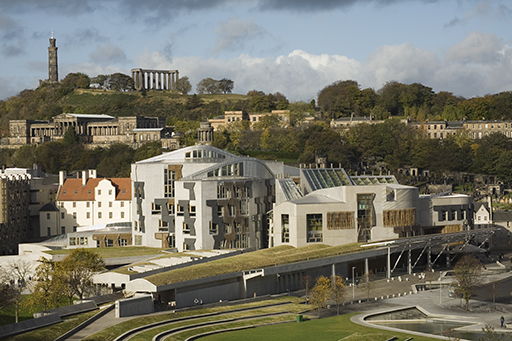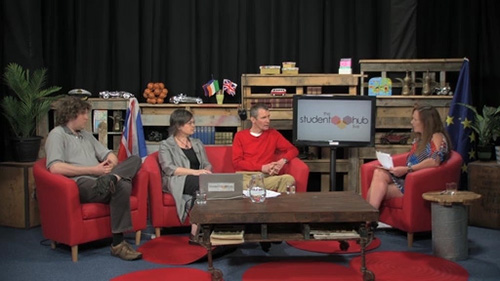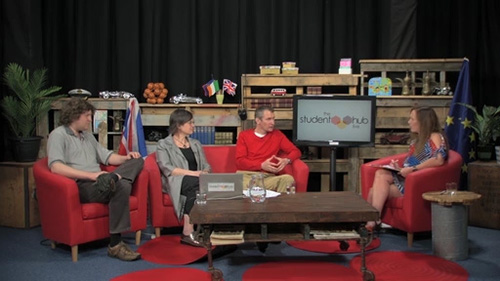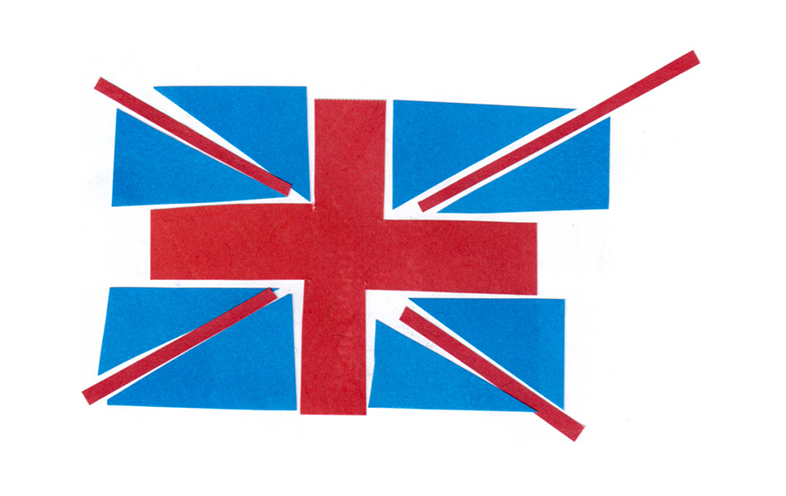2 The significance of national identity
The votes in the Brexit referendum reflected some significant differences between the ways in which national identity is understood in the various nations and territories that make up the UK. In England it has been argued that the Leave vote and evidence of support for the UK Independence Party leading up to the vote was (at least in part) an expression of English nationalism. The strongest and most united national identity reflected in the vote was probably in Scotland where there was a Remain majority across all of the electoral areas. And – initially at least – it appeared the vote might be the trigger for a second independence referendum. In Northern Ireland the Remain majority reflected a shifting balance in (although possibly also a softening of the politics across) the religious and political divide, as Catholics voted 85/15 Remain and Protestants 60/40 Leave. In Wales the pattern was similar to that in England with older industrial areas voting Leave and Cardiff voting Remain, while the Welsh speaking rural areas also tended to vote Remain.
This suggests that ‘nationalism’ has a rather uncertain presence. In England it seems to have led to a Leave vote; in Scotland to a strong Remain vote; in Northern Ireland a greater affinity with Irish nationalism seems to have encouraged a Remain vote, while a closer affinity to the UK (itself perhaps a form of nationalism) made a Leave vote more likely; in Wales, there is some evidence that Welsh language and a greater sympathy for Plaid Cymru made a Remain vote more likely.
Activity 1 Thinking about nationalism
How do you understand ‘nationalism’? In considering this question you might like to think about the following:
- Is it a positive process, opening up new ways of living in a complex world?
- Is it a reactionary process resisting the drive to globalisation and international openness?
- Does it unleash negative forces creating unpleasant divisions between people?
- Does it have the potential to break up old relations of dominance and foster positive communal initiatives in the face of an increasingly uncertain world?
Feedback
Nationalism is not a simple phenomenon. That means it is not easy – or even possible – to give straightforward answers to the questions posed above. It can be all those things at different times and in different contexts. Some nationalisms may be exclusionary – coping with complexity by shutting particular groups out of ‘national’ society. Others may be inclusionary – using the frame of a ‘nation’ to invite a range of groups into a shared project of nation-building.
One way of highlighting these tensions is to draw a distinction between what has been called ‘civic nationalism’ and ‘ethnic nationalism’. The former can be understood to be territorial and based on common values and institutions. In this model it is possible to become a member of a national community by choosing to join it. Such a nationalism is likely be open and outwardly directed. By contrast, ethnic nationalism is based around membership of a national community as a given, whether by place of birth or by lineage (often evocatively described as ‘by blood’). The assumption is that there is a shared and largely homogenous national culture, which works to exclude as much as to include.
This is a helpful distinction and some nationalist parties (such as the Scottish National Party) specifically identify themselves with civic rather than ethnic nationalism, even as other movements and parties stress their roots in ethnic identity. Like all simple distinctions, however, there may be a danger that it fails to capture the ways in which nationalism often works across both axes in practice – appealing to a shared (and often romanticised past) even as it points towards a positive national future. The ‘whole family’ of nationalisms, as Tom Nairn reminds us, ‘is spotted’ rather than simply one thing or the other (Nairn, 1975, p. 18).
As a way into a discussion of what the patterns of the referendum vote may have to tell us about the UK as a multinational state, you should first complete Activity 2 in order to reflect on the outcome in Scotland, where it appears that there was a more or less shared national consensus.

Activity 2 Understanding the vote in Scotland
Play the following video in which George Callaghan explores some of the issues surrounding the impact of nationalism on the Brexit vote. He brings together many of the arguments that emerged in the wake of the Scottish vote.
What are the main points made by George Callaghan? Write your notes in the answer box below.


Student Hub Brexit Debate [Tip: hold Ctrl and click a link to open it in a new tab. (Hide tip)]
Feedback
George Callaghan argues that it is important to reflect back on a longer history, suggesting that Scotland’s relationship with Europe stretches back beyond the formation of the UK in 1707. More recently (since the first devolution vote in 1979, and in an accelerated form since the formation of the Scottish Parliament in 1998) he notes that there has been an increasing divergence between the political priorities being pursued in Scotland and those of Westminster (which George identifies as English). He highlights the strong irony that in Scotland’s own independence referendum (in 2014) one of the arguments put by those campaigning against independence was that the only way to remain in the EU was to remain in the UK. The Remain vote, says George Callaghan, was an expression of national identity – which he sees as more European and internationalist than is true for the English national identity. In other words, it could be seen as further evidence that some of the glue that previously held the UK together was beginning to lose its strength, and such a view seemed to underpin the argument for a second independence referendum as initially put forward by the Scottish National Party in the wake of the European referendum.
